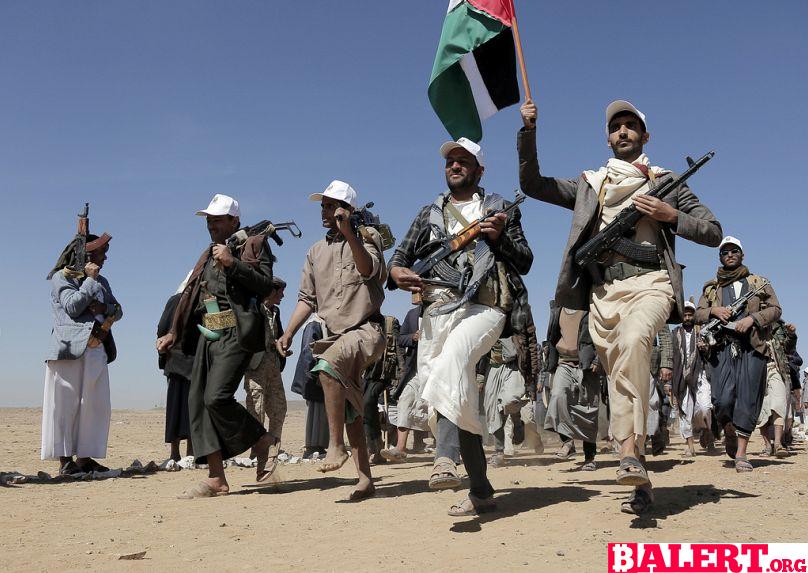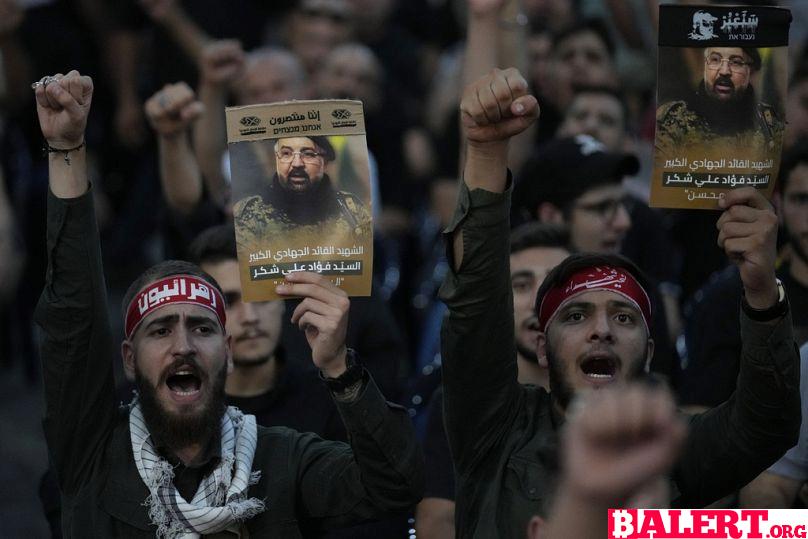World
The Aftermath of Ismail Haniyeh’s Assassination and Its Implications for Iran
Explore the profound implications of Ismail Haniyeh’s assassination on regional dynamics and Iran’s influence. This analysis delves into the aftermath, potential shifts in power, and the broader geopolitical landscape following this critical event.

The Aftermath of Ismail Haniyeh’s Assassination
The suspected assassination of Ismail Haniyeh by Israeli forces has sent tremors through the Middle East, with significant implications for Iran. The predawn airstrike, which reportedly targeted the Hamas leader, has ignited fears of further escalation in an already volatile region. Although Israel has not officially claimed responsibility for Haniyeh’s death, Iran has vowed to retaliate, warning that the regime will face consequences for its actions.
Iranian President Masoud Pezeshkian was quoted saying, “The Islamic Republic of Iran is in no way seeking to expand the scope of war and crisis in the region, but this regime will definitely receive a response for its crimes and insolence.” The nature of Iran’s response remains uncertain, but it could involve mobilizing regional militias that have received arms and support from Tehran over the years.
The History of Iran’s Military Alliances

Iran’s longstanding policy of arming militias gained momentum after the 1979 Islamic Revolution. Previously, the United States had supplied Iran with advanced weaponry, including F-14 Tomcat fighter jets, under the Shah’s regime. However, following the revolution and the subsequent U.S. Embassy hostage crisis, military support ceased, leaving Iran to rebuild its military capabilities amidst a backdrop of war and sanctions.
During the eight-year-long Iran-Iraq War in the 1980s, much of Iran’s military hardware was destroyed, and ongoing international sanctions, particularly related to its nuclear program, hampered its ability to acquire new weapons. As a result, Iran has increasingly relied on militias as a strategic means to counterbalance the advanced military capabilities of Israel and its Gulf allies.
Hezbollah: A Key Ally
One of Iran’s most significant allies is Hezbollah, the militant group based in Lebanon. Established in the 1980s to combat Israeli forces, Hezbollah has developed into a formidable military entity, currently engaged in drone operations against Israel. The group is known to possess a vast arsenal, estimated to include around 150,000 rockets and missiles, some of which are precision-guided. This extensive stockpile poses a serious threat to Israeli security.
Hezbollah’s military capabilities are complemented by its experienced fighters, who have gained combat experience from various conflicts, including the Syrian Civil War. Estimates suggest that Hezbollah has around 25,000 full-time fighters, with the potential for tens of thousands more in reserve. In 2021, Hezbollah’s leader, Hassan Nasrallah, claimed that the group had trained over 100,000 fighters.
The Axis of Resistance: Iran’s Broader Network
Iran’s influence extends beyond Hezbollah, encompassing a range of militias across the region, collectively referred to as the “Axis of Resistance.” This network has been instrumental in Iran’s strategy to project power and counter U.S. and Israeli interests.
Iraqi Militia Forces
In Iraq, Iran has actively supported various militia groups, particularly since the rise of the Islamic State in 2014. The Popular Mobilisation Forces (PMF), a coalition of mainly Shiite militias, have become a significant political and military force in the country. Estimates suggest that these groups have around 180,000 fighters and are equipped with rockets, drones, and other military hardware.
Since the onset of the Israel-Hamas conflict, Iran-backed militias in Iraq have increased their attacks on U.S. forces, with over 60 documented incidents. The deadliest attack occurred on January 28, when a drone strike attributed to these groups resulted in the deaths of three American soldiers. In response, the U.S. has conducted airstrikes targeting militia positions, aiming to disrupt their operational capabilities.
Palestinian Militants: An Unlikely Partnership

Notably, Iran has also extended its support to Palestinian militant groups, despite their Sunni affiliation. Both Hamas and Islamic Jihad have received weapons and military support from Iran, illustrating Tehran’s commitment to opposing Israeli actions in the region. The conflict has escalated dramatically since the Hamas assault on October 7, resulting in heavy casualties on both sides, with tens of thousands of Palestinians reported killed in the ensuing Israeli military response.
The Houthis in Yemen
In Yemen, the Houthi rebels, who have controlled the capital Sanaa since 2014, have also benefited from Iranian backing. Although the Houthis practice the Zaydi branch of Shiite Islam, they have effectively turned into a significant military force capable of launching missile and drone attacks, even targeting Israel. The Houthis’ actions have disrupted international shipping routes and raised their profile in regional politics.
The U.S. Navy has struggled to contain the Houthi attacks, leading to intense confrontations reminiscent of historical warfare. While the extent of Iran’s direct control over the Houthis is debated, their collaboration has certainly bolstered the rebels’ military capabilities, allowing them to recruit and expand their fighting force significantly.
Potential Retaliation Scenarios
In light of the recent tensions, experts speculate about the nature of any Iranian retaliation. Following an Israeli strike on an Iranian facility in Syria, Iran demonstrated its military capacity by launching a significant barrage of drones and missiles toward Israel. A similar retaliatory strike is conceivable, especially if Hezbollah joins the fray, seeking to avenge the killing of a senior commander in the recent Israeli attack.
This potential escalation raises concerns about Israel’s air defense systems being overwhelmed, leading to increased casualties and a possible wider regional conflict. The situation remains precarious, with the potential for significant consequences not only for Israel and Iran but for the entire region.
World
Dominique Pelicot Testifies in Harrowing Rape Trial
Join us as Dominique Pelicot courageously testifies in a harrowing rape trial, shedding light on the complexities of trauma and justice. Her powerful story raises crucial questions about the legal system and the importance of support for survivors.

Dominique Pelicot Takes the Stand in Shocking Rape Trial
In a courtroom drama that has captivated France and garnered international attention, Dominique Pelicot, the man at the center of a harrowing rape trial, finally addressed the court. With tears streaming down his face, he recounted how his wife had been instrumental in helping him cope with a tumultuous past marked by trauma. He revealed that he had endured a sexual assault at the tender age of nine while hospitalized, and he also witnessed a gang rape during his teenage years while working as an apprentice electrician on a construction site.
“She didn’t deserve this, I acknowledge that,” Mr. Pelicot stated, his voice barely audible as he struggled to convey his emotions. The gravity of the situation weighed heavily on him, and the courtroom fell silent, straining to catch his every word.
Now 71 years old, Mr. Pelicot faces serious allegations of drugging his wife, Gisèle Pelicot, whom he has been married to for half a century, over a span of nearly ten years. Prosecutors contend that he used drugs to render her comatose, allowing him to rape her repeatedly. Furthermore, authorities allege that he went so far as to invite numerous men into their home, facilitating a nightmarish scenario where they, too, engaged in the assault of his wife.
Overall, 51 men, including Mr. Pelicot, are on trial concurrently, primarily facing charges related to the aggravated rape of Ms. Pelicot. Among them, one individual has already pleaded guilty to similar crimes, admitting to drugging his own wife to assault her and inviting Mr. Pelicot to partake in the horrific act while she was incapacitated.
Mr. Pelicot’s unexpected testimony came after a tumultuous start to the trial. Just a week in, he was stricken with severe health issues that forced him to miss four consecutive days in court. The head judge ultimately decided to postpone proceedings, as Mr. Pelicot was diagnosed with kidney stones, a kidney infection, and prostate complications, adding yet another layer of complexity to this already harrowing case.
World
Meta Bans Russian State Media Outlets from Social Media Platforms
Explore the implications of Meta’s decision to ban Russian state media outlets from its social media platforms. Understand the impact on information dissemination and the ongoing battle against misinformation in the digital landscape.

Meta Imposes Global Ban on Russian State Media Outlets
In a significant move, Meta Platforms, Inc., the parent company of Facebook, has announced the prohibition of Russian state media outlets, including RT (Russia Today) and Rossiya Segodnya, from all its social media platforms. The decision stems from the company’s concerns regarding the deceptive strategies employed by these media organizations to execute covert influence operations across the internet.
Meta made this announcement on Monday, emphasizing that the ban will be enforced worldwide across its various platforms, such as Instagram, WhatsApp, and Threads. The rollout of this ban is expected to take place over the coming days.
Statement from Meta
A spokesperson for Meta elaborated on the decision, stating, “After careful consideration, we have expanded our ongoing enforcement actions against Russian state media outlets. As a result, Rossiya Segodnya, RT, and other affiliated entities are now banned from our applications globally due to their involvement in foreign interference activities.”
For further insights into this development, watch the video in the player above.
World
Trump Recalls Alleged Assassination Attempt While Golfing
Explore Donald Trump’s chilling recollection of an alleged assassination attempt he experienced while enjoying a round of golf. Delve into the tense moments and his reflections on safety, fame, and the unpredictability of public life.

In a recent interview on the social media platform X, Republican presidential nominee Donald Trump recounted a harrowing incident he claims to have experienced while playing golf. Trump described how, during a peaceful Sunday morning round with friends, the tranquility of the day was abruptly shattered by the sound of gunfire in the air.
“It was a beautiful day, everything was just perfect,” Trump reflected. “Then all of a sudden, we heard shots being fired—probably around four or five in total.” He went on to explain that a Secret Service agent was the first to spot the suspect, who was allegedly armed with an AK-47, a powerful assault rifle.
“The agent saw the barrel of the weapon and immediately took action, returning fire at the barrel and aiming in the direction of the bushes,” Trump detailed. “I would have loved to have sunk that last putt, but we decided it was best to leave the scene promptly.”
Trump expressed his gratitude towards the agents and a vigilant civilian who aided in tracking down the suspect, who was eventually apprehended following a high-speed chase.
Suspect Faces Multiple Federal Gun Charges
The FBI has identified the suspect as Ryan Wesley Routh, accusing him of targeting Trump during his time at the golf club in West Palm Beach, Florida. According to an FBI report, Routh had allegedly hidden among the hedges of the golf course for an astonishing 12 hours. Authorities discovered an SKS-style assault rifle, a GoPro camera, and a bag of food at the scene.
The 58-year-old Routh is now facing two serious federal gun charges. If convicted on both counts, he could face a combined maximum sentence of 20 years in prison. Notably, neither of the charges is directly related to an assassination attempt. The first charge pertains to possessing a firearm despite a prior felony conviction, which carries a potential 15-year sentence, a fine of $250,000 (€225,000), and three years of supervised release.
The second charge involves possession of a firearm with an obliterated serial number, which could result in a five-year prison term, the same financial penalties, and also three years of supervised release. As the investigation continues, additional charges could be forthcoming.
While the motive behind Routh’s actions remains unclear, his digital footprint reveals strong political affiliations, particularly concerning issues surrounding Ukraine and China. Routh consistently expressed support for Ukraine across various social media platforms, even claiming to have orchestrated a recruitment scheme for international volunteers aiming to assist Ukraine in its fight against Russia’s invasion. This behavior has been denounced by Ukrainian soldiers and members of the International Legion, who disavowed Routh’s actions and motives.
-

 Business5 months ago
Business5 months agoThe Significance of Jackson Hole: A Central Banking Tradition
-

 Tech4 months ago
Tech4 months agoNew Leaks and Features About the Samsung Galaxy S25 Ultra
-

 Business6 months ago
Business6 months agoObituary: Dan Collins
-

 Article7 months ago
Article7 months agoCreative Design Applications Developed with Artificial Intelligence
-

 Business4 months ago
Business4 months agoBhutan’s Strategic Investment in Bitcoin: A New Era for the Himalayan Kingdom
-

 Gaming7 months ago
Gaming7 months agoMore than a thousand students vowed not to work for Amazon and Google due to the Nimbus Project.
-

 World4 months ago
World4 months agoThierry Breton Resigns: Impact on European Union Leadership
-

 Gaming4 months ago
Gaming4 months agoNew Details and Trailer Released for Dead Rising Deluxe Remaster












